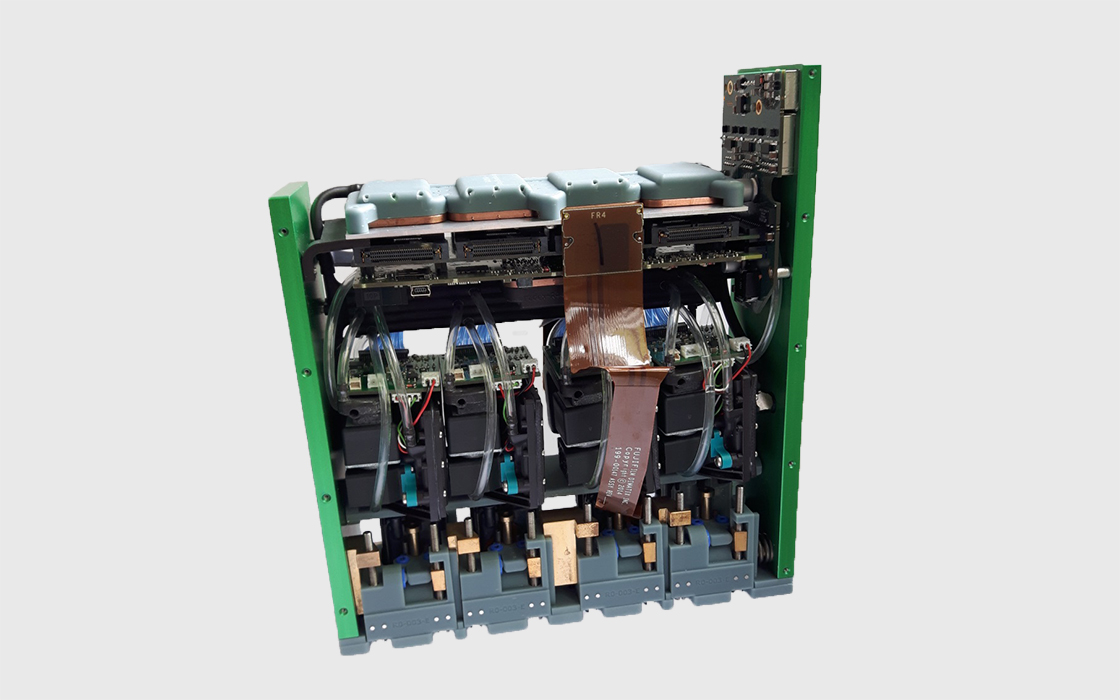SAPE – a modular printing system
The modular printing system SAPE raises the benchmark in terms of printing speed and quality.
This project had two primary objectives: firstly the aim was to significantly reduce the waiting time between the print order and the start of printing. Secondly, a light, compact printing unit was to be developed which was to be modular in structure.
Radex AG manufacturers makes industrial printing machines for label and textile printing. Image data has to be rendered prior to printing. The image material is processed for each print head. The images are cut in strips to the width of the print heads and their position is shifted as necessary. The colours are also separated according to the ink colours available for printing. The pixels required for printing are then read out of the processed image data and re-sorted for each specific print head, after which they are loaded onto the print head.
In order to reduce the waiting time that elapses between the print order and actual printing (up to several hours in the case of very large images), much of the computational burden was transferred from the computer (host/server) to a field programmable gate array (FPGA) and parallelised. This not only accelerated image processing but also enabled miniaturisation of the electronics. In conjunction with new production techniques such as 3D printing and bionic design, this contributes to creating a compact and lightweight print module. The weight of the print module was reduced by more than 2/3 as compared to similar units on the market, while at the same time, performance was increased by a factor of two in terms of printing quality and speed.
In addition to developing the digital circuit for data transfer to the print heads in the FPGA, the project also involved the development of an analogue fire-pulse circuit to control the print jets. Furthermore, an algorithm was developed to optimise positioning of the medium as a FPGA. Both tasks were carried out at the FHNW Institute of Microelectronics. A subproject involving the analysis and optimisation of fluidics processing was also carried out at the Institute of Thermal and Fluid Engineering. Staff at Radex carried out the mechanical work required to make the print module as well as developing the circuit boards and all software solutions.
Client | Radex AG |
Execution | |
Research sponsor | Innosuisse (Kommission für Technologie und Innovation KTI) |

